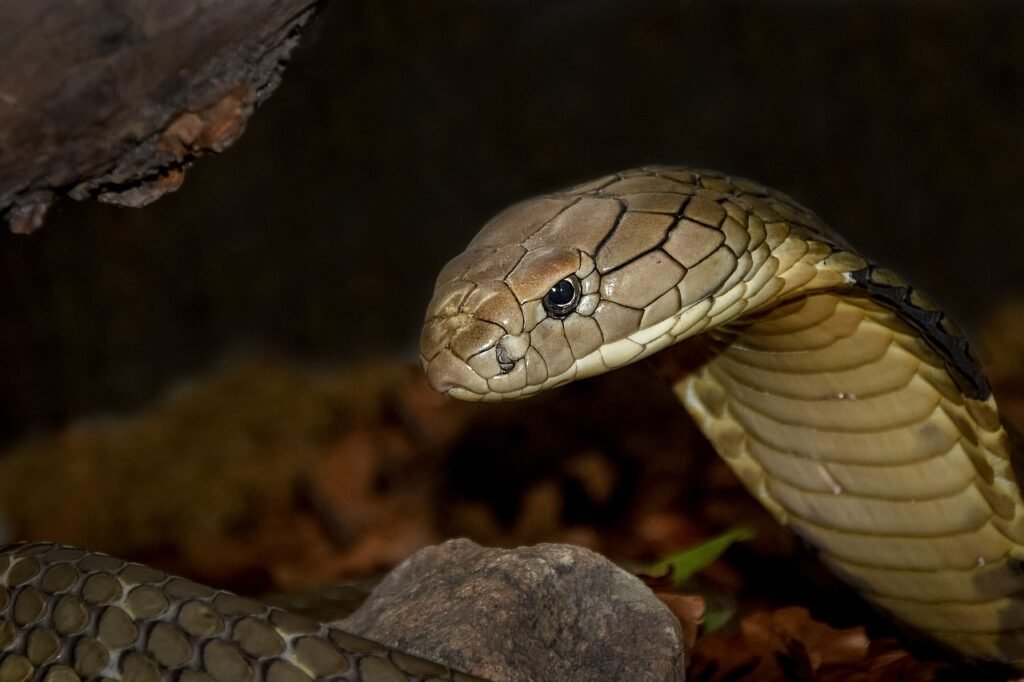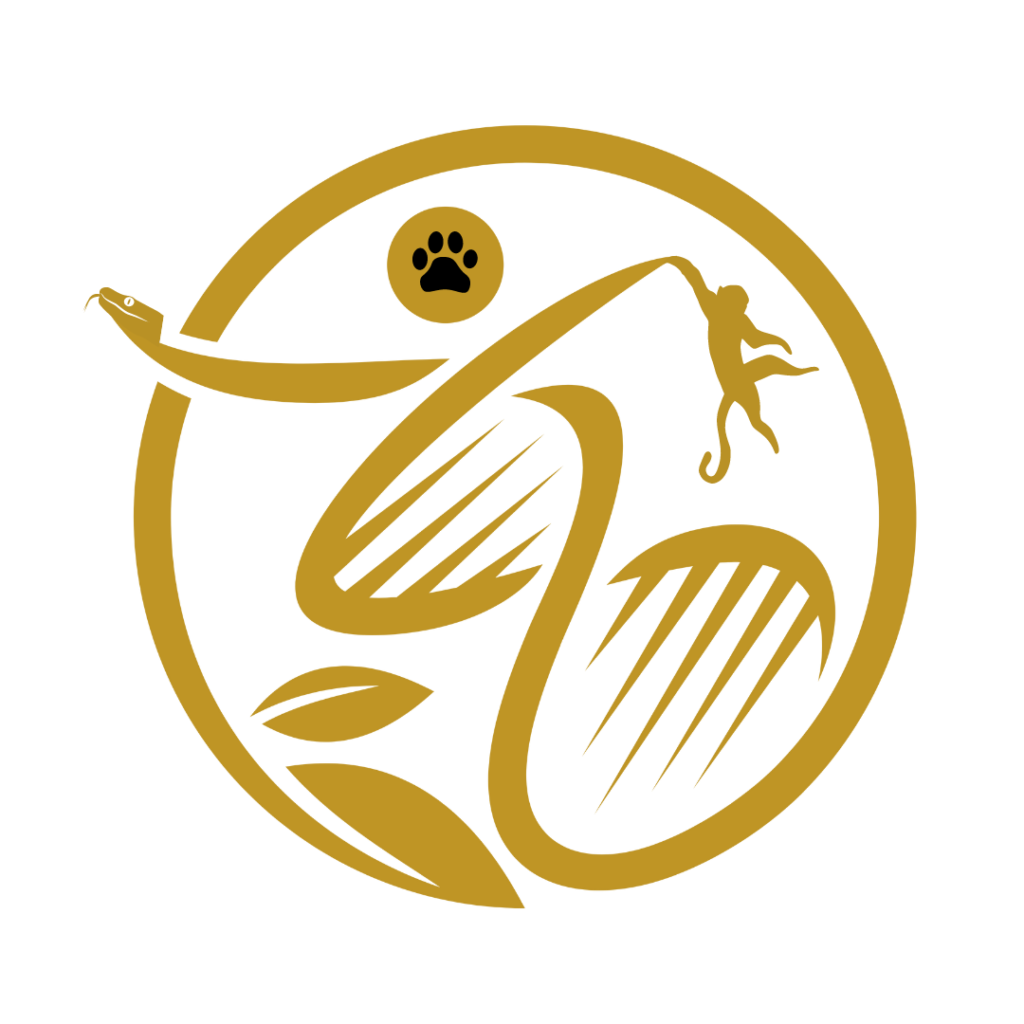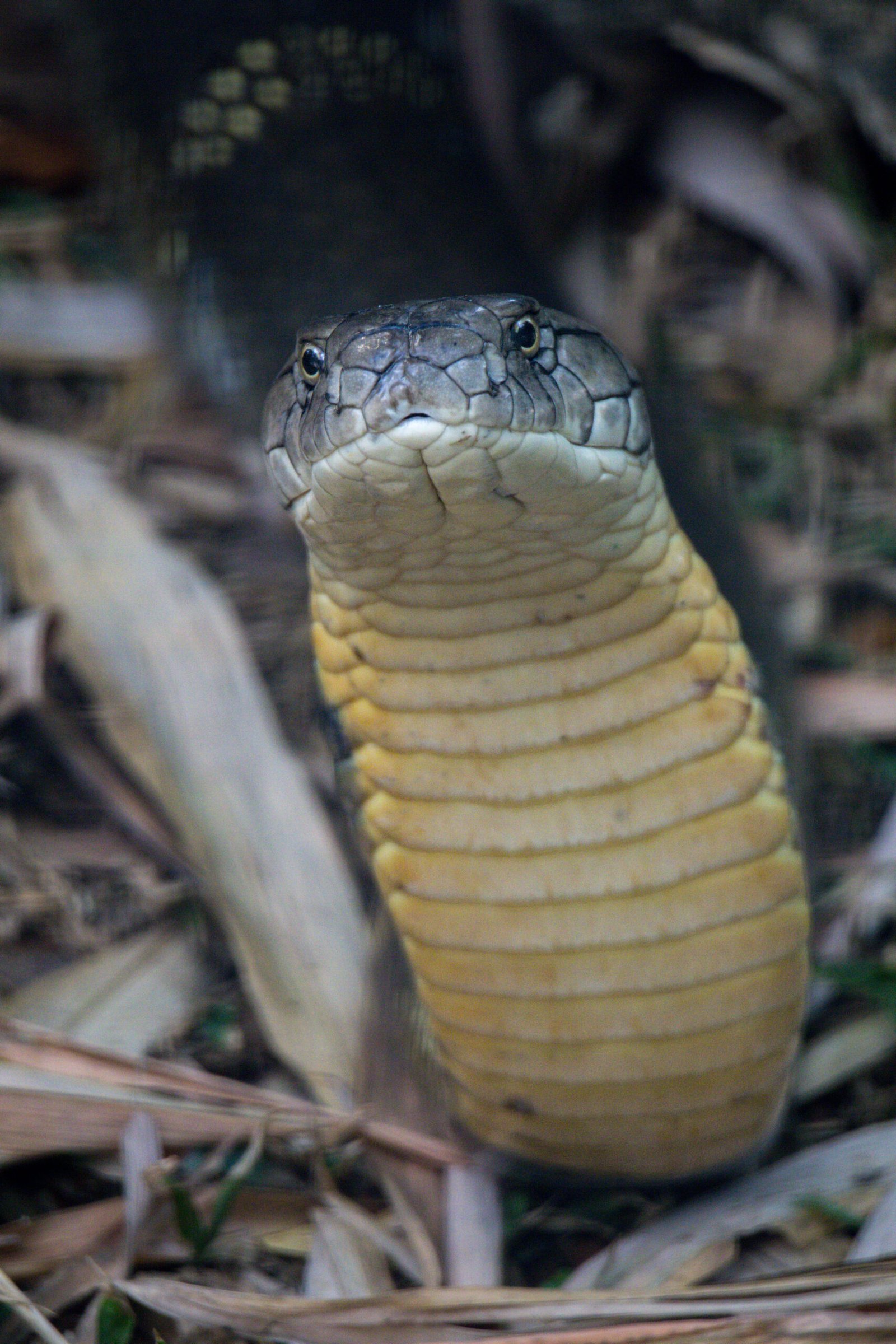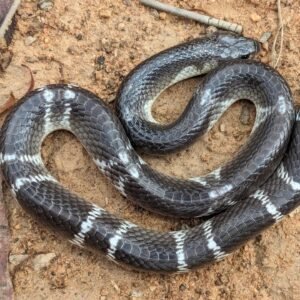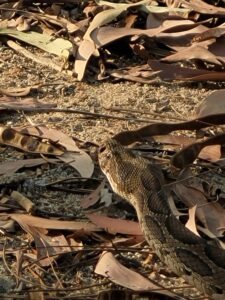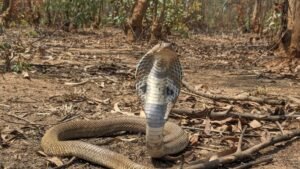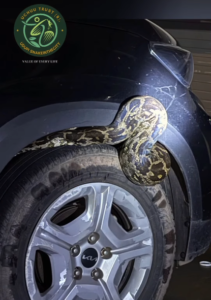INTRODUCTION
- Venomous Elapid
- Largest Venomous Snake and not a “True” Cobra.
- Threatened by habitat destruction in SE Asia.
- Neurotoxic Venom: Paralyzes muscles leading to respiratory and cardiac failure.
IDENTIFICATION
- Brownish-black body with light cross-bands along body that slightly fade with age.
- Display hood when threatened and have a very large head of golden shade.
- Have large occipital scales behind head unlike other cobras.
- Pale yellowish shade on its ventral part of the body.
- Very heavy-bodied and adults average 10 feet with some growing 15+ feet.
DISTRIBUTION AND HABITAT
- Mostly Western Ghats and Northeast India. Sometimes found in extreme northern parts of India like western Himalayas.
- Inhabit Tropical forests, Bamboo Thickets and sometimes agricultural land mostly nearby rainforests.
- Females build nests using leaf litter to house eggs and guard it aggressively. Only snakes to make nests.
- Rarely sighted as they avoid encounters with humans and move away quickly.
DIET AND BEHAVIOR
- Majority of diet consists of other Snakes. Notoriously known as snake eaters.
- Occasionally feed on Monitor lizards and birds when food is scarce.
- Diurnal as it hunts during the day and rarely seen at night.
- When threatened, they raise their hood and let a “growling” hiss with their mouth wide open.
- Can lift their body a very significant portion off the ground and lunge towards a threat.
- Extremely smart in comparison to other snakes. Aware of surroundings and plans its attacks.
